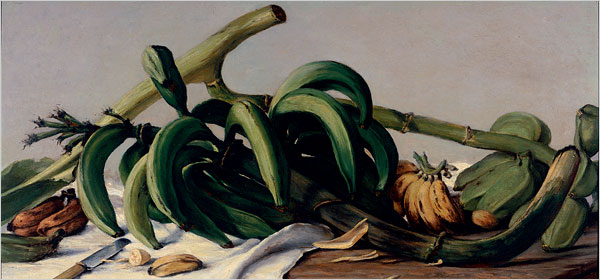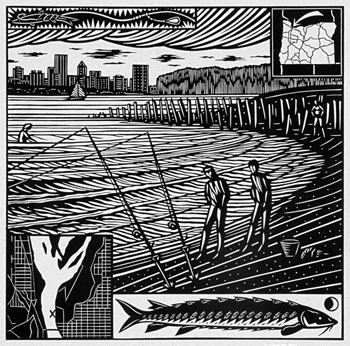
The public realm. At the memorial service for Joel Weinstein, who honored us by choosing to be buried in Lone Fir Cemetery, after spending the past 14 years in warmer places surrounded by Latin American art, which both he and his partner, Cheryl, love, the public realm (as articulated by Paul Goldberger in the post below) occurred to me, specifically as it related to Joel.
Because Joel was a one-man public-realm band. He generated culture for the the public realm and he transmitted culture within the public realm. He created and connected and consumed, and though he never talked about it to me in these terms exactly, I think he took some degree of responsibility for the public realm, our public realm, at the same time that he took pleasure from it. His magazine, Mississippi Mud, was his most tangible contribution, maybe, but he intersected with the city, its artists, writers, barristas and pastry chefs in lots of other ways, too.
At the ceremony, one of his close friends (far closer than I) remarked that Portland hadn’t been the same since he left in 1994. Which is true, I suppose, though I read him to mean that his own life was poorer for want of Joel, that losing Joel and his delightful community of connections, reduced him in a clear and definite way. And I found myself thinking and then saying that Joel had been with us when we needed him most, during that dismal of Portland decades, the Eighties, when the economy was grim, many of our talented friends left and news of all sorts was brutal. That’s when his one-man band, his crusade to save us from our cynicism and our ennui, tooted its way through our streets, a parade that could celebrate even those awful times. Hey, if the coffee and company and cookies were good, how bad could life really be? And if we could write and make art and maybe gossip a little on the side? How much closer to paradise could we expect to be?
The Eighties left, a new generation arrived (much of it from other places), and a renaissance of all the things Joel loved began. And he wasn’t here to enjoy it. But for him that wasn’t such a big deal — he was enjoying himself just as much somewhere else as he would have here, more so actually because he was enjoying it with Cheryl. And he left us a model for living in the public realm, for treasuring it, for enjoying it.
I don’t believe that you get what you need. But in Joel’s case, we DID get what we needed, whether we deserved it or not. I’m trying not to mythologize here. Joel wasn’t the Enlightened One. In fact, I liked that about him — his prejudices and moments of thoughtlessness, his sudden changes of emotional temperature, his heavy judgments. He was one of us, prey to the same (or similar) desires and shortcomings, and still maintained some momentum, some positive momentum, despite them. His irrepressibility was all the more noteworthy because he faced the same hurdles, of character, of the human condition, as the rest of us. So… Joel, thanks. Again.
 OK, this one’s a little long, but it tries to get at some important issues of how we organize ourselves, operate in the world, through the lens of two “artist managers,” Seattle’s Anne Focke and the late Joel Weinstein.
OK, this one’s a little long, but it tries to get at some important issues of how we organize ourselves, operate in the world, through the lens of two “artist managers,” Seattle’s Anne Focke and the late Joel Weinstein.